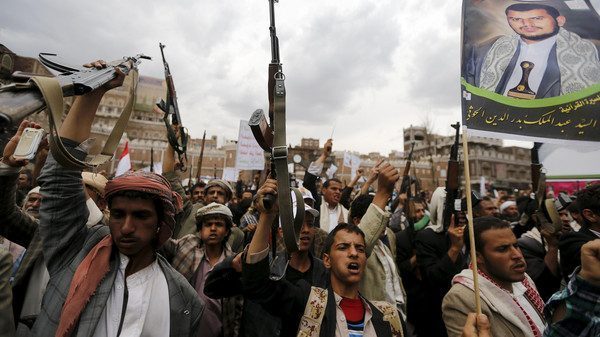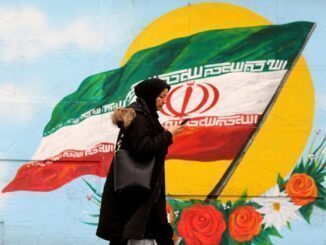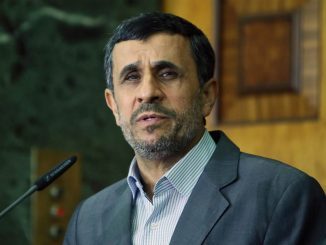
Iran-backed Houthi militias insist on rejecting a peace deal proposed by U.N. Special Envoy to Yemen Ismail Ould Cheikh Ahmed, despite the pressure exerted by the ambassadors of the 18 countries backing political talks in Kuwait.
Yemeni sources close to the matter said that the international community has notified the Houthi delegation that political negotiations will not go forward if both parties fail to sign and implement the conditions of the new roadmap.
News agencies reported that Ould Cheikh Ahmed has informed the United Nations Security Council during a closed session on Wednesday that Houthi militias have refused to sign the latest peace deal.
Diplomats said Britain and other council members wanted a statement to criticize the Houthis for announcing a formal alliance with the country’s ousted president and his former ruling party by setting up a new political council to rule the country, a step U.N. envoy Ismael Ould Cheikh Ahmed described as jeopardizing peace efforts.
an official at the Yemeni government’s delegation to Kuwait said that the Houthis did not submit any comments regarding the peace deal. He added that the Houthis were insisting on the formation of a government and a presidential council.
While the items of the U.N. peace deal were not officially announced, sources said that the government’s delegation stressed, upon signing the agreement, that the deal should be considered void should the Houthis refuse to sign it before the end of the second round of negotiations on August 7.
Yemeni President’s advisor Nasser Taha Mustafa said newspaper that the Houthis did not want peace but were seeking international recognition of their rebellion. He added that any solution to Yemen’s crisis should be based on U.N. Security Council Resolution 2216, which gave the Houthi militia the right to actively participate in the country’s political life.
Mustafa urged the international community to exert more pressure on the Houthis to sign the peace deal.
Russia henders a statement condemning Houthis
Saudi Arabia’s permanent representative to the U.N. Abdullah Al-Muallimi said that Russia has hampered the issuance of a press release that expresses international concern over Houthis’ announcement to forge a formal alliance with the country’s ousted President Ali Abdullah Saleh and set up a political council to rule the country. The press release described Houthis’ step as jeopardizing peace efforts.
The U.N. special envoy asked the Security Council to issue a statement stressing the importance of Yemen’s peace negotiations held in Kuwait and describing Houthis’ political council an “unconstructive step that does not serve peace in Yemen.”
Russia’s U.N. Ambassador Vitaly Churkin objected to the announcement of the Security Council’s statement, as it did not include a reference to the “national unity government” that Houthi militias were calling for.
Ould Cheikh Ahmed had described Houthis’ announcement to form a political council as a unilateral measure that violates Yemen’s Constitution and the relevant international resolutions.
The second round of intra-Yemeni peace talks was launched in Kuwait on July 16. Yemeni governmental sources said that Ould Cheikh Ahmed’s draft plan calls on the Houthis to withdraw from three major cities, including the capital Sanaa, hand over weapons and return state institutions they seized in September 2014.
Yemen has been wracked by chaos since late 2014, when the Houthis and their allies overran Sanaa and other parts of the country, forcing President Abd Rabbuh Mansour Hadi and his Saudi-backed government to temporarily flee to Riyadh. Saudi soldiers
The Saudi-led coalition began a military campaign against Iran-backed Houthi militias in March 2015. It sides with the President Abd Rabbuh Mansur Hadi, while the Houthis are aligned with ousted President Ali Abdullah Saleh, who was ousted after Yemen revolution in 2012.



